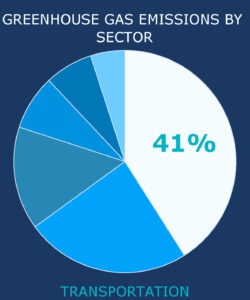
Energy data can help homes and businesses save money through greater efficiency. Household savings from energy upgrades, even with potential increases in energy rates, could be as much as $1,000 annually.
How Improved Energy Data Access Can Bolster Clean Energy Technologies & Save Money
Expanded access to key energy data has the potential to bring significant climate change benefits. These benefits include reduced power plant pollution from better energy efficiency, reduced pollution from cars and trucks from greater electric vehicle adoption, and a decarbonized electricity supply from more renewable energy, balanced by resources such as energy storage, demand response, and smart grid technologies that can help manage system load without increasing emissions.

Energy data can help homes and businesses save money through greater efficiency. Household savings from energy upgrades, even with potential increases in energy rates, could be as much as $1,000 annually.

Expanded data access can help utility companies implement cost-effective and environmentally friendly grid improvements. Energy data can help utility customers adapt their usage patterns to grid needs, such as reducing demand during periods of high stress on the grid eschewing the need for dirty peak power plants.

Energy data access can lead to more cost-effective public policies. With improved data access, government incentives for energy efficiency upgrades, renewable energy, electric vehicles, and energy storage purchases can be made more targeted and effective.
Mandate utility energy data disclosure and reward compliance through financial incentives or recovery of costs.
For example, demand response providers currently must pay utilities for customer meter data. However, the state could greatly improve the process by defining the ability of utilities to transfer data to third parties with specified privacy protections, by giving them incentives to participate. At the same time, the state should ensure monitoring of utility compliance with existing mandates related to energy data disclosure.
Establish a right to improved energy data access for customers.
Policymakers should clearly establish that utility customers have the right to more easily access their usage data in a simply organized, standardized format. This right should include access to derivatives of customers’ personal data, typically resulting from utility-run analytics of the raw data. Customers should also be able to share or transfer those rights and their access to third-party clean technology companies.
Allow the data to be accessible via an independent data center or via multiple competitive centers.
By enforcing independence, data centers could encourage third-party access and the development of competitive markets. One or more data centers, independent of utilities, could provide integrated, accessible customer-centered data for use by the community of third-party vendors, policymakers, and other stakeholders.
Require utilities to disclose customer tariff information.
Transparent cost data can help commercial customers undertake cost-benefit analyses of proposed energy efficiency measures to decide on optimal investments. However, efficiency companies need standardized tariff data in order to readily and accurately make this evaluation.
Create an ad hoc “tariff tech group” to develop a web-accessible tariff engine.
California customer usage data in 15-minute hourly intervals should be reported and made linkable to customer-specific tariff data for maximum efficiency gains. As rates become more complex, accurately translating energy savings into dollars becomes increasing difficult, and yet these dollar savings represent the central determinant of customer decision-making.
Require more utility disclosure of assets and grid needs via utility planning documents.
AB 327 (Perea) requires utilities to submit plans for “distribution resources” including optimal locations for such resources. These plans could include the localized value of their distributed grid assets, plus the geographic locational value of data. The California Public Utilities Commission could enhance the AB 327 directive to require that each utility provide a methodology and a model to demonstrate the feasibility and benefits of its plan.
Consider the “15/15 rule” for disclosing energy audits.
Building or tenant data may be considered “anonymized” if the data unit has at least 15 members, with no one member accounting for more than 15 percent of the quantity measured.
Ensure that suggested data research center(s) contain proper safeguards to protect the cybersecurity of the grid and of individual customers.
The suggested database can be housed on market-based, multi-channel platforms that could be open to many hardware and software vendors. By creating diversity in the data platforms, they may be less hackable than a single-source, vertical vendor solution.
“To make decisions, we need to understand the before as well as the after, and customers need to have data to change behavior. The importance of measuring and having feedback to customers directly cannot be understated.”
Alex Keros California Public Utilities Commission, General Motors